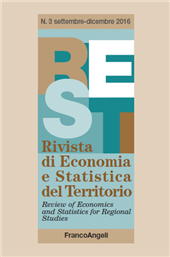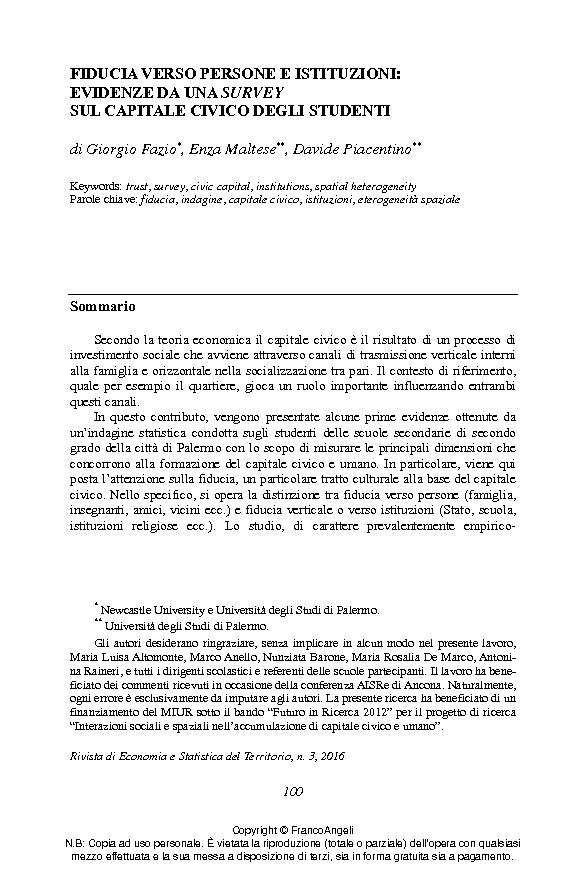Fiducia verso persone e istituzioni : evidenze da una survey sul capitale civico degli studenti
100-112 p.
Objectives According to economic theory, civic capital is the result of a process of social investment through vertical transmission channels, internal to the family, and horizontal socialization, among peers. The reference context, such as the neighbourhood, plays an important role influencing both of these channels.This paper presents some initial evidence obtained from a statistical survey conducted on students of secondary high schools of the city of Palermo with the aim of measuring the basic dimensions that contribute to the formation of the civic and human capital. In particular, the focus is here placed on trust, an important cultural trait at the base of civic capital. In particular, it draws a distinction between trust in people (family, teachers, friends, neighbours etc.) and institutions (state, school, religious institutions etc.).
Methods and Results. The analysis here proposed is predominantly descriptive. After reporting some information on the characteristics of the survey and the sample, the study focuses on the general tendency of students with respect to trust in persons and Institutions by means of descriptive statistics. Then, the analysis aims at investigating heterogeneity across space and depending on the level of education of the reference adults at home, using basic statistical tests of difference and ANOVA. In general, trust emerges as a cultural trait characterized by "strong ties", established through more intensive relationships, where the high degree of trust towards family, friends and teachers contrasts a general mistrust towards those people and institutions characterized by weak bonds.
The spatial analysis highlights statistically significant differences in the comparison between students living in the urban and extra-urban area and among those in different neighbourhoods of the city. These differences seem to emerge also with regard to the educational level of the reference adults at home. Conclusions. This analysis seems to provide preliminary evidence of interest for local policymakers. However, it seems necessary to carry out more detailed future analysis in order to better identify the mechanisms of transmission of values and the role of the school and local institutions in the process of civic capital formation. [Publisher's Text].
-
Articles from the same issue (available individually)
-
Information
ISSN: 1972-5000
KEYWORDS
- Fiducia, indagine, capitale civico, istituzioni, eterogeneità spaziale
- Trust, survey, civic capital, institutions, spatial heterogeneity



